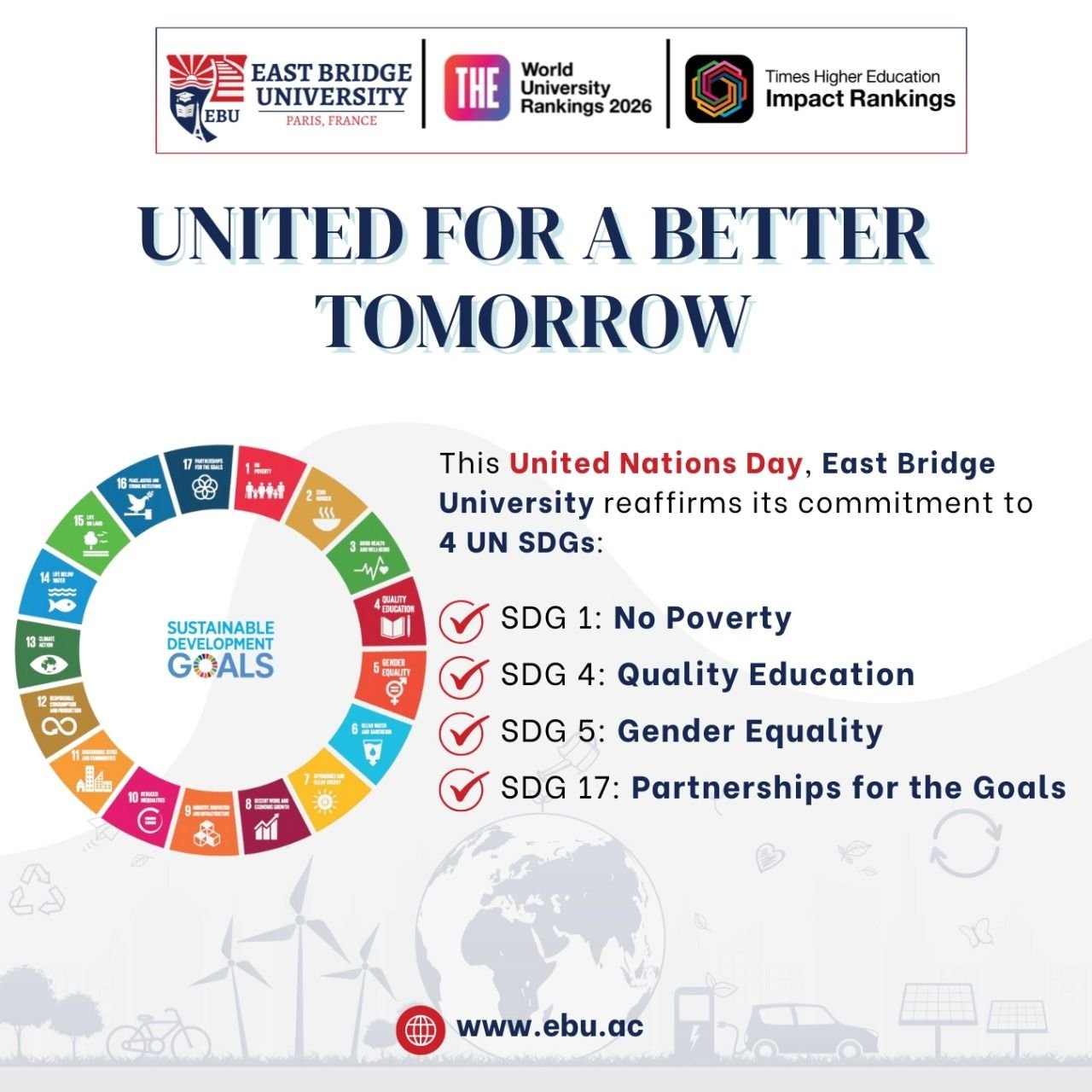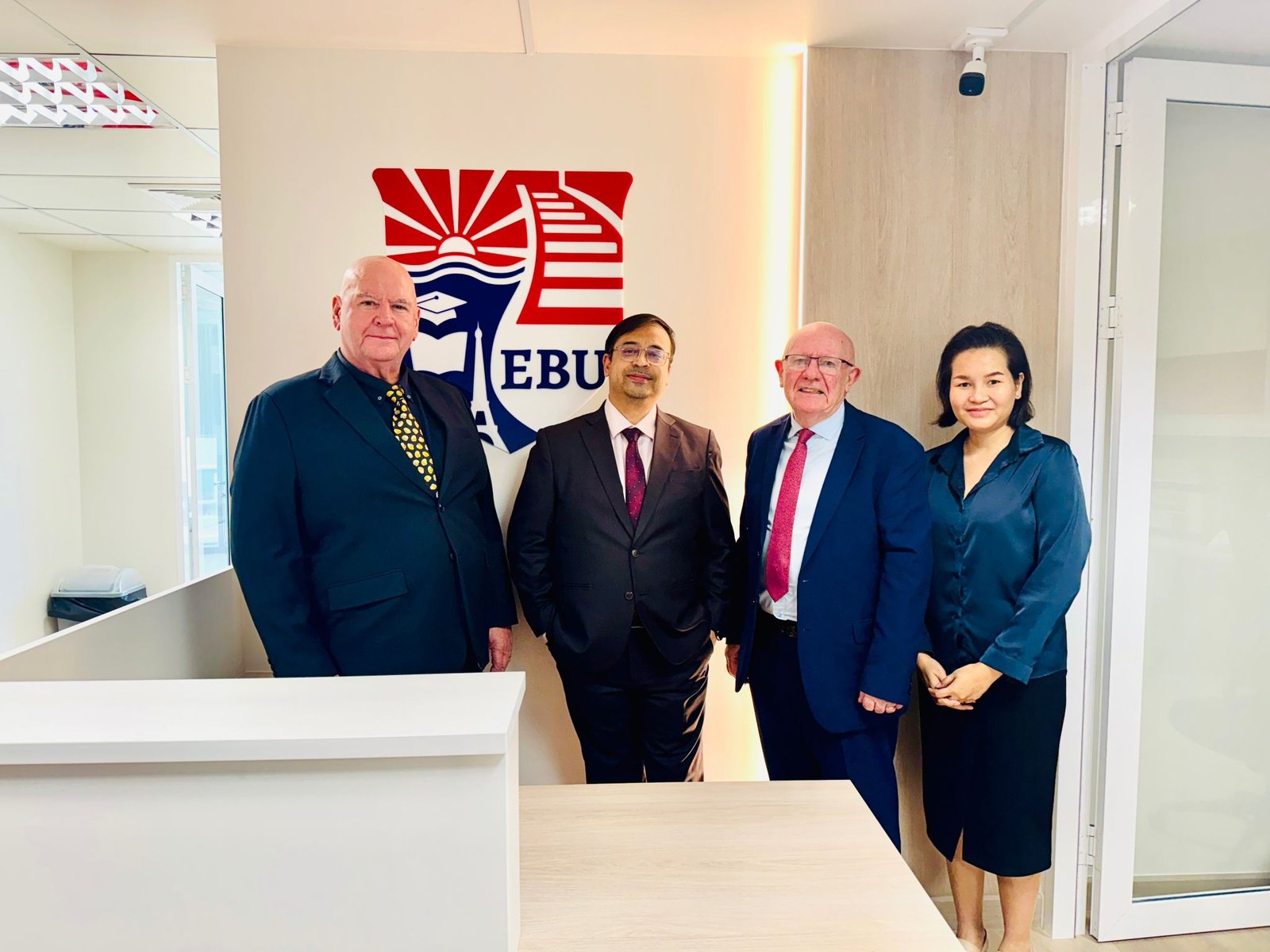In a country where millions of children still face barriers to education, the classroom has become both a battleground and a beacon of hope. Across India’s government schools, a quiet transformation is taking place—led not by policy alone, but by educators committed to creating real change where it matters most. Among the institutions driving this change is East Bridge University (EBU), whose initiatives are redefining how education can break the cycle of poverty.
Through its community outreach and academic collaboration efforts, EBU is proving that learning is not confined to lecture halls or digital platforms—it’s a lifelong force for empowerment, inclusion, and mobility. Aligned with the United Nations’ Sustainable Development Goals (SDG 1: No Poverty and SDG 4: Quality Education), the university’s mission extends beyond the pursuit of degrees—it is about creating equitable access to knowledge that transforms communities.
Bridging Inequality Through Education Poverty, in many parts of India, is perpetuated by educational exclusion. Children in under-resourced schools often face large class sizes, limited teacher training, and outdated materials. For many, education stops before it starts—curtailed by economic hardship or lack of access. EBU’s initiative intervenes at this critical point by sending trained educators, coordinators, and student volunteers into government schools across India to strengthen teaching quality and learning outcomes.
These efforts are part of EBU’s broader Financial Inclusion and Student Success Initiative, which aims to make education a catalyst for long-term economic mobility. By connecting theory with community practice, the university’s programs empower educators to deliver lessons that are inclusive, relevant, and sustainable. Through structured teaching initiatives, EBU-supported educators are not just improving academic performance—they’re nurturing the confidence, curiosity, and resilience that help children rise out of poverty.
Empowering Teachers, Enabling Futures
At the heart of this transformation are EBU’s educator training programs, which equip teachers with modern pedagogical skills and adaptive learning techniques. Delivered through EBU’s online teaching degree and flexible online degree programs, these initiatives ensure that professional growth is accessible, regardless of geography or background.
The results are measurable and inspiring. Across its professional development and vocational training efforts, 94% of EBU-trained teachers report improved teaching effectiveness, 87% implement new strategies in their classrooms, and 78% continue their professional development after completing EBU programs. These outcomes show that quality education begins with empowered educators—teachers who can inspire learning, innovation, and hope.
Beyond the numbers lies a philosophy of lifelong learning. By integrating online degree programs for professionals and capacity-building modules into its teacher training frameworks, EBU ensures that education is not just an event but a continuous journey. This approach enables teachers in rural and urban India alike to refine their skills, pursue higher qualifications, and build a foundation for leadership in education.
Programs That Build Pathways
EBU’s work in government schools forms part of a larger network of programs aimed at creating equitable access to knowledge. Through East Bridge Training (EBT), the university offers vocational and professional development programs open to the general public, including teacher training, early years care, and special education. These initiatives serve over 267 active learners across KHDA-approved programs, complemented by executive education modules that benefit 156 working professionals, with 89% achieving career advancement within six months.
In parallel, EBU’s accredited online degree courses—spanning Bachelor’s Degree, Master’s Degree, and online Doctorate programs—offer flexible pathways for learners who aspire to combine academic excellence with social impact. The accessibility of these online degree programs ensures that education remains within reach for individuals from low-income and remote communities, bridging the gap between aspiration and achievement.

Cultural Adaptation and Community Connection
EBU’s teaching initiatives in government schools are not one-size-fits-all interventions. Every program is tailored to local contexts, ensuring that cultural and linguistic differences are respected. From bilingual teaching modules to locally adapted lesson plans, EBU focuses on inclusivity at every level.
This approach mirrors the university’s commitment to online degrees that integrate global standards with local relevance. Whether through its degree courses offered across 89 countries or its community workshops serving thousands of beneficiaries annually, EBU ensures that education remains relatable, inclusive, and impactful.
From the Classroom to the Community
The ripple effect of EBU’s initiatives extends far beyond classroom walls. By improving the quality of education in government schools, the university indirectly supports families, communities, and regional economies. Better education outcomes mean better job opportunities, higher income potential, and stronger communities.
Through sustained engagement with educators, EBU has created an ecosystem where education is not merely about literacy—it’s about empowerment. Students who learn under trained teachers gain skills that enable them to think critically, contribute meaningfully, and break intergenerational cycles of poverty.
Education That Transforms Lives
EBU’s mission is rooted in the belief that education is the most powerful equaliser. Its collaboration with government schools in India exemplifies how academic institutions can bridge inequality through innovation, inclusion, and empathy.
Every classroom reached, every teacher trained, and every child inspired brings the university closer to its vision of a world where opportunity is defined not by privilege, but by potential.
As a global institution with partnerships spanning continents, East Bridge University continues to prove that real progress happens when education is shared. Whether through its fast-track online degree programs for professionals or its on-ground teaching initiatives for underprivileged children, EBU stands as a living example of education’s power to transform not just minds—but entire communities.


